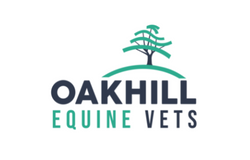Gastric ulcers
Gastric, or stomach, ulcers are sores that form on the stomach lining, due to prolonged or excessive exposure to acid produced by the stomach. Any horse can suffer from gastric ulceration, from elite performance horses to pleasure horses and ponies.
GASTRIC ULCERS
Previously, gastric ulceration was thought to only affect our elite athletes, however, it is becoming a wider and more recognised problem in our companion animals.
Whilst the incidence remains highest in those horses undergoing intense exercise regimes i.e. racehorses, up to 64% of show, sport and leisure horses may have gastric ulceration.
As horse owners it is important to be aware of the signs which may indicate that your horse is uncomfortable.
SIGNS TO LOOK OUT FOR
As horse owners it is important to be aware of the signs which may indicate that your horse is uncomfortable. Clinical signs include:
- Reduced appetite.
- Loose droppings.
- Recurrent signs of colic.
- Behavioural change under saddle – resentment of girthing, unwillingness to go forward, napping and bucking.
- Behavioural change in the stable – grumpy demeanour, resentment of abdomen being touched/groomed.
- Poor coat quality.
- Ill thrift.
- Development of crib biting/wind sucking behaviour.
- Weight loss.
DIAGNOSIS
Gastroscopy – a three metre rigid endoscope – remains the only way to definitively diagnose gastric ulceration. This is a camera which enables us to view the horses stomach on a computer screen. We can then determine if ulcers are present or not, the regions of stomach affected and the ulcer grade. From here we can develop appropriate treatment regimes and monitor response to treatment.
The procedure is performed under standing sedation, following a 16-hour starve (which doesn’t cause gastric ulceration) and is tolerated really well by our patients.
All horses go home with a diet plan and client information sheet.
Did you know that we can perform gastroscopy examinations at your yard? Gastroscopy examinations are generally undertaken at our equine clinic, but we can also perform the procedure at your yard. Call for more info!
TREATMENT
Omeprazole is the only licensed treatment for gastric ulceration in the UK. It is very effective in both treatment and at a lower dose for prevention. There is no withdrawal period for competition under FEI regulations. Horses racing under British Horseracing Authority rules are not allowed to compete on treatment.
Ulcers in the lower (mucosal) area of the stomach lining may additionally be treated with sucralfate which provides a protective coating over the ulcer to assist healing.
Some types of ulceration are associated with bacterial infection and may require antibiotic treatment.
CAUSES AND PREVENTION
Diet
Cells in the horse’s stomach continually secrete acid. In the wild, horses constantly graze, supplying a trickle of grass and saliva which buffers the acid. With modern management, horses and ponies often have periods without food, but stomach acid is still produced and this excess acid may cause gastric ulceration. Feeding a diet rich in cereals also further increases stomach acidity.
- Roughage is vital in the horse’s diet.
- Regular turnout at grass will help to prevent ulcers.
- When stabled, frequent provision of hay or haylage will promote a natural eating pattern.
- Increasing the fibre content and reducing the carbohydrate content of feed, will help to prevent ulcer formation.
- Some antacid-type supplements may help to reduce signs and recurrence of ulcers.
- Addition of vegetable oil to the diet (up to 200ml twice daily) can benefit protection of the mucosal region of the stomach. Introduce slowly to the diet to prevent diarrhoea and be aware of increased calorie content.
Exercise
During exercise, acid which is produced in the lower part of the stomach, may splash up onto the sensitive upper part of the stomach
- Small amounts of fibre, such as a handful of alfalfa or chaff, fed before exercise may help to stimulate saliva production to neutralise the acid and provides a mat in the stomach to absorb the acid.
Stress
Sick horses and foals as well as horses on certain medications are at higher risk of gastric ulcers. Transportation, relocation, hospitalisation and a change in management can also increase the risk of gastric ulcerationS.
